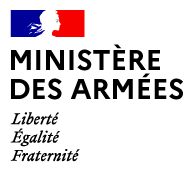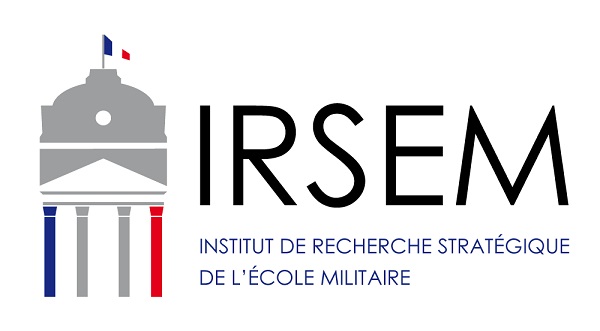Download Strategic Brief no. 33 - 2022
War in Ukraine: Strategic Dilemmas in the Indo-Pacific
Marianne Péron-Doise
In the Indo-Pacific, the Russian invasion of Ukraine has rekindled fears of China’s possible use of force. Reactions in the region reflect this concern, with the need to maintain stable relations with Russia. For the United States and its Asian allies, it is an opportunity to contemplate the pertinence of their historical bilateral alliances. Are they sufficiently dissuasive to contain China’s multidimensional expansion? Will they be effective in the event of a crisis?
Asian countries are watching the Russia-Ukraine war and its developments with concern, even though they fear the consequences in different ways. Many of them are still recovering from the economic and social consequences of Covid-19 and fear the possible effects of the conflict on their daily lives in terms of rising energy prices, financial market turbulence, and disruption in supply chain continuity. Those that have condemned the Russian invasion and adhered to the sanctions, such as Singapore, Japan, South Korea, and Australia, expect to be the targets of retaliatory cyber-attacks. Moreover, Asian countries are particularly faced with the difficulty of maintaining balanced diplomatic relations between the United States, Russia, Europe, and even more so with China. This Chinese variable clearly paralyzes them.
The tone of Asian mainstream media reflects the complexities of this position. Even though a distant player, Russia remains the supplier of major military equipment, such as submarines and fighter aircraft, which will require long-term maintenance unless new and costly procurement programs are launched. The United States, a leading power in Asia, has made the Indo-Pacific its strategic priority, and represents a driving force behind a renewed system of political and military alliances through QUAD and AUKUS, two partnerships intended to contain China’s expansion. For its part, the European Union is an important economic and commercial partner, particularly for ASEAN, India, and Japan, but for China too. While there are questions about its ability to implement its newly published Indo-Pacific strategy, its intense diplomatic engagement and its search for viable options (from economic sanctions to weapons deliveries) to influence the course of the war are attracting attention. Nevertheless, strategic dependence on China remains the fundamental decisive factor in many countries’ assessment.
Asian countries watching the Russia-Ukraine war are obviously imagining the scenario of China using force and fearing an intensification of fait accompli situations. Beijing’s unilateral expansion in the South China Sea, the increasingly serious Sino-Japanese tensions over the Senkaku Islands, and the prospect of an invasion of Taiwan are all real factors that weigh on the decision of these Asian countries to express support. Accordingly, the Taiwanese President unequivocally condemned the Russian attack and immediately aligned with Western sanctions.
It is in this light that the half-hearted report published on February 26 by ASEAN should be analyzed. The document particularly avoids the term invasion, preferring the expression “armed hostilities”. Only Singapore and Indonesia used firmer language, mentioning respect for Ukraine’s territorial integrity. Vietnam, a major importer of Russian and Ukrainian weapons, opted for a cautious tone and referred to the Charter of the United Nations. The country abstained in the United Nations General Assembly vote on March 2 calling for the condemnation of Russia. Hanoi indeed has a high-level strategic partnership with the latter, a status shared only with India and China. The Burmese military junta, which receives political and military support from Moscow, alluded to a “justified invasion.”
The restraint shown by ASEAN, reflecting a major strategic dilemma, is not just due to small countries in unbalanced situations with major powerhouses on which they depend and between which they neither wish to nor can choose. India, torn between key partners, has refrained from making any statement condemning Russia’s actions thus far. Faced with China’s expansion in the Indian Ocean and on its Himalayan border, it does not want to have to choose between Russia, its main supplier of weapons, and the United States. However, this balancing act would appear untenable over the long term, particularly as Delhi is a member of QUAD.
Reactions are more predictable in Eastern Asia. Unsurprisingly, China does not clearly denounce Russia while calling for restraint from Moscow and Kiev. Japan and South Korea have aligned with the United States and the European Union on the policy of sanctions. Still, the three countries are concerned about isolating Russia too much, as it remains a complex neighbor to manage.
Japan does not wish to alienate Russia which intends to maintain control over the Kuril Islands (Northern Territories for Japan), much to the discontent of Tokyo that has seen a sharp increase in the activity of the Russian Pacific fleet. The two countries have yet to sign a peace treaty since the end of World War II and Moscow has just indicated that it is abandoning all negotiations in response to Japan's condemnation vote on March 2. As for South Korea, its newly elected president, the conservative Yoon Suk-yeol, his recent statements presage a tougher line against China and North Korea. His stated intention to acquire additional batteries of Terminal High Altitude Air defense (THAAD) missiles to defend Seoul has not failed to provoke a reaction from Beijing, foreshadowing an increase in regional tensions.
The rapprochement seen between China and Russia raises additional concerns. At the opening of the Beijing Olympics in early February, Vladimir Putin stood complacently at Xi Jinping’s side, boasting their relationship as being “closer than ever”. In a joint statement, the two presidents had denounced the US Indo-Pacific strategy as well as the AUKUS security partnership. Their shared interest is reflected in their denunciations of NATO's advances in Europe. But this open connivance, which serves the respective interests of both men, is not without flaws. Putin’s tendency to take military action sparks questions in Beijing. With his incessant use of force in Georgia, Crimea, and Kazakhstan, the Russian president challenges the principle of border integrity and non-interference that China constantly advocates, especially in legitimizing its “rights” over Taiwan. Hence the ambiguity of its position with respect to Ukraine, which Beijing regards as a sovereign state, unlike Taiwan which is seen as an “inalienable” part of Chinese territory. Ironically, while the war in Ukraine is a means of hindering the US’s Indo-Pacific ambitions for Beijing, it should neither overly serve nor weaken Russian power. In this respect, the vigorous international sanctions, unity in condemning the war, and the rise of domestic protests in Russia are all cause for alarm in China.
The effectiveness of the response from Washington, the EU, and NATO in supporting a friendly country under attack is carefully scrutinized. The seriousness of the US’s security guarantee and the extent to which it provides deterrence are indeed key factors in assessing the reality of the US’s power in the Indo-Pacific. The war in Ukraine therefore represents a full-scale test of Washington’s ability to coordinate an effective response that could reverse the course of a conflict of this size – proportionally speaking, as there is no direct military engagement on their part, since Kiev is not tied to any of their security agreements. Notwithstanding, Washington has tried to prevent the conflict through intelligence sharing and significant military assistance. For China, this is an invaluable case study from a political, economic, and operational perspective. But for those in Southeast Asia who believe their “neutrality” protects them, the bipolarization of the international strategic landscape resonates as a threat.
Marianne Péron-Doise is a researcher at the French Institute for Strategic Research (IRSEM) and an associate research fellow at the French Institute for International and Strategic Affairs (IRIS). Her work focuses on strategic balances in East Asia and the role of “maritime security” in international relations.
Contact: marianne.peron-doise@irsem.fr



